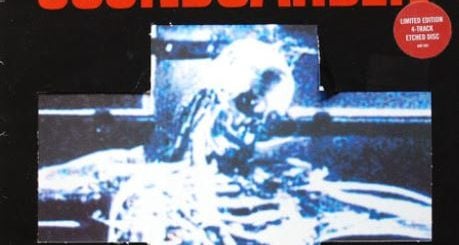4th of July by Soundgarden Lyrics Meaning – A Lyrical Firework of Existential Proportions
Lyrics
Clean sparks diving down
Cool in the waterway
Where the baptized drown
Naked in the cold sun
Breathing life like fire
Thought I was the only one
But that was just a lie
‘Cause I heard it in the wind
And I saw it in the sky
And I thought it was the end
And I thought it was the fourth of July
Pale in the flare light
The scared light cracks and disappears
And leads the scorched ones here
And everywhere no one cares
The fire is spreading
And no one wants to speak about it
Down in the hole
Jesus tries to crack a smile
Beneath another shovel load
‘Cause I heard it in the wind
And I saw it in the sky
And I thought it was the end
And I thought it was the fourth of July
Heard it in the wind
And I saw it in the sky
And I thought it was the end
And I thought it was the fourth of July
Fourth of July, July
Now I’m in control
Now I’m in the fall out
Once asleep but now I stand
And I still remember your sweet everything
Light a roman candle
And hold it in your hand
Heard it in the wind
And I saw it in the sky
And I thought it was the end
And I thought it was the fourth of July
Heard it in the wind
And I saw it in the sky
And I thought it was the end
And I thought it was the fourth of July, yeah
Laden with grungy guitar riffs and the haunting timbre of Chris Cornell’s voice, Soundgarden’s ‘4th of July’ is not just a track, but an auditory journey through themes of despair, self-realization, and an apocalyptic scenery. Released on their lauded 1994 album ‘Superunknown’, the song’s heavy sludge metal dressings belie a deeper lyricism than might first be discerned.
Transcending a mere play of instruments and voice, ‘4th of July’ invokes an introspection that’s ignited beneath the guise of a national holiday’s celebratory symbols. Sparking with metaphor and social commentary, let’s delve into the sonic fireworks and explore the deep-seated meanings that underpin one of Soundgarden’s most enigmatic compositions.
Apocalypse Now: Visions of The End
Cornell’s somber vocals coupled with the doom-laden instrumentals evoke a world on the brink of collapse. ‘I heard it in the wind, And I saw it in the sky’ suggests premonition, a common thread through human history where natural phenomena are harbingers of catastrophe. In an era marked by political turmoil and environmental distress, ‘4th of July’ eerily reflects our own societal concerns – are we too witnessing omens of a looming end?
The repetition of this haunting prelude to the chorus establishes it as a central mantra of the song – a reminder of the ever-present fear of a final reckoning. The unpredictable grandiose fireworks often associated with the Fourth of July stands in stark contrast to the possibility of an apocalyptic finale, making the commemoration of independence an allegory for potential annihilation.
An Anthology of Loneliness: The Illusion of Singularity
The lines ‘Naked in the cold sun, Breathing life like fire, Thought I was the only one, But that was just a lie’ encapsulate a solitary struggle against the elements. This notion of braving adversities alone is a poignant statement on our collective loneliness. Even when engulfed by a societal blaze, one can feel singularly isolated.
Soundgarden channels this inner conflict of individuality versus collectivity by exposing the lie we often tell ourselves about our isolated struggles. The cold sun juxtaposed with breathing fire connects elemental oppositions – the external world’s indifference to our internal wars, and in turn, the realization that our ‘lone battles’ are shared by many.
Subtle Sociopolitical Undertones: Reading Between The Lines
With Soundgarden, nothing is ever surface level. Lines such as ‘And everywhere no one cares, The fire is spreading,’ possess a political edge – an indictment of general apathy towards societal issues. Unchecked, problems metastasize, much like fires left to spread, suggesting a collective responsibility goners.
Chris Cornell’s writing often walks a tightrope between the personal and the political. Encrypted within the poetry are pleas for awareness and engagement – a call to care before the fire consumes all too close to home.
The Hidden Meaning: A Dive into the Psyche
Bubbling beneath the overt narrative of an apocalyptic foreboding and societal critique, ‘4th of July’ may also serve as a metaphor for an internal existential crisis. When Cornell intones ‘Down in the hole, Jesus tries to crack a smile,’ it presents a portrait of someone attempting to find humor in dark times, to glimpse hope amidst despair.
The ‘Fourth of July’ thus becomes a symbol not just of independence but of awakening. It’s the recognition of a personal fallout and the subsequent control regained, a resurrection paralleling the song’s motif of baptism and rebirth.
Memorable Lines That Shook Listeners
‘Now I’m in control, Now I’m in the fall out, Once asleep but now I stand, And I still remember your sweet everything.’ These lines deliver a subtle conclusion to the narrative. Once incapacitated by the overwhelming forces (be it societal or internal), there’s a newfound station of sovereignty over the ensuing chaos.
This concluding sentiment doesn’t just resonate with listeners, it vibrates along the spine and reignites in the mind long after the song’s end. It is the ‘sweet everything’ – perhaps memories, past hopes, or forgotten dreams – that humanizes the apocalyptic and the political, turning ‘4th of July’ into a pyrotechnic display of emotional profundity alongside its masterful musicianship.








